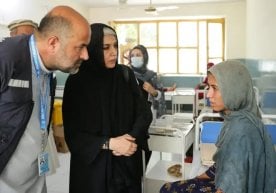A revolutionary approach to cancer: healing cells, not destroying them

Researchers from the Korea Advanced Institute of Science and Technology (KAIST) have proposed a completely new approach to cancer treatment — instead of destroying cancer cells as traditional methods do, their method aims to reprogram the cancerous cells back into healthy ones. This breakthrough study was reported by New Atlas.
Genetic Reprogramming — A New Era Begins
Led by Professor Kwang-Hyun Cho, the research team digitally modeled the gene networks of normal cells and thoroughly studied the complex mutation mechanisms that lead to cancer. Their main discovery is that "master regulators" such as MYB, HDAC2, and FOXA2 play a key role in restoring cellular balance.
By blocking the activity of these genes, the scientists managed to revert cancer cells to a healthy state without destroying them. This result was validated through both molecular-level and cellular-level experiments, including trials on animal models.
Fewer Side Effects, Personalized Results
This method could result in fewer side effects compared to traditional chemotherapy or radiotherapy. It also paves the way for personalized treatment based on a patient's genetic and molecular profile.
Though the study currently focuses on colorectal cancer, experts believe it could also be applied to other types of cancer, such as breast, liver, and leukemia.
One Step to Clinical Trials
The research is still in the experimental stage. Large-scale clinical trials are required to assess its safety and efficacy in humans. Results have already been published in the journal Advanced Science, and BioRevert Inc., in collaboration with KAIST, is working on bringing this method into clinical practice.
From Zamin.uz Editorial:
This scientific breakthrough may mark a new chapter in the fight against cancer. A tailored approach, reprogramming of cells, and restoring them to their natural state — this is the medicine of the future. What do you think about this innovation? Read “Zamin” on Telegram!
Ctrl
Enter
Found a mistake?
Select the phrase and press Ctrl+Enter 





















